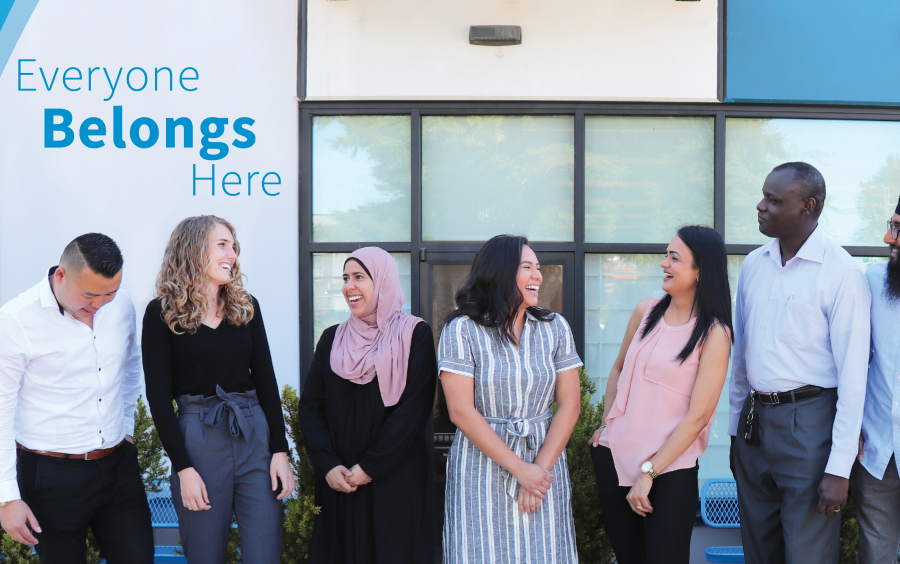Today, June 27, is Canadian Multiculturalism Day, a day to celebrate the cultural diversity of Canadians, and the history that brought us here today.
It was on October 8, 1971, in a statement to the House of Commons, that Prime Minister Pierre Trudeau announced multiculturalism as an official government policy. The intent was to not only preserve the cultural freedom of all individuals, but also to recognize the cultural contributions of diverse ethnic groups to Canadian society.
What does multiculturalism mean to us at DIVERSEcity?
It’s about inspiring belonging in a strong integrated community.
As a registered charity in Surrey and the Lower Mainland, we’ve been doing this for 40+ years by offering free, multilingual programs and services in language, settlement, employment and counselling.
And we recognize that messages of inclusion and belonging are more important than ever. So, today on Canadian Multiculturalism Day, we are officially launching our new tagline, “Everyone Belongs Here.”
Why does “Everyone Belong Here”?
Here are some facts and figures from Statistics Canada and the Census to understand why helping everyone feel like they belong is not just the right thing to do, but is essential with today’s changing demographics:
- Immigration accounts for more than 80 per cent of the population growth in Canada.
- During the first three months of 2019, Canada’s population increased by 98,410 persons due to immigration, bringing our population to 37,412,852.
- 21.9 per cent of the Canadian population reports they are or were a landed immigrant or permanent resident in Canada.
- More than 250 ethnic origins or ancestries are reported by the Canadian population.
- British and French origins are still among the most common, but their share in the population has decreased considerably since Confederation.
- In 2016, 2.1 million people, or 6.2 per cent of the total Canadian population, reported Indigenous ancestry.
- In 2016, 7,674,580 individuals were identified as belonging to a racialized population. They represented more than one-fifth (22.3 per cent) of Canada’s population. Of this number, three in 10 were born in Canada.
- South Asians, Chinese and Blacks were the three largest racialized groups, each with a population exceeding one million. These are followed by Filipinos and Arabs, who almost doubled their numbers in 10 years and had the highest growth rates among racialized groups from 2006 to 2016.
Want to learn more about diversity and inclusion, connect with us on social media @DIVERSEcityBC on Facebook, Twitter, LinkedIn and Instagram! We share messages, stories and information on these topics and welcome you to the conversation!

